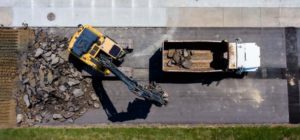If you are involved in the industrial, food production, manufacturing or intensive animal industries your town planning process will likely include “Environmentally relevant activities” or ERAs.
Basically, ERAs are about applying additional scrutiny to any site usages that have the potential to release emissions, which can impact on the local environment or other nearby land uses. A full list of all prescribed ERAs can be found here, but some common examples are provided below:
- Pig and poultry farming
- Chemical, coal, and petroleum products activities
- Plastic product manufacturing
- Electricity generation
- Dredging
- Food processing including milk, meat, seafood, beverage production, and bottling/canning
- Metal foundry
- Textile manufacturing e.g. carpet, cotton, wool etc
- Glass manufacturing
- Sawmilling, woodchipping, and timber or laminate manufacturing
- Waste management e.g. tyre recycling, battery recycling.
If your activities fall within a prescribed use, then there are two approval paths. Most prescribed ERAs require assessment by the State Government, specifically the State Assessment and Referral Agency (SARA). This State approval usually happens at the same time as your council approval for your land use as a “concurrence ERA”. You will find that most ERAs will also require development approval for those activities under a planning scheme.
A development application for a concurrence ERA is also an application for an environmental authority (EA), according to the Environmental Protection Act 1994. Where a concurrence ERA is for a material change of use, the council development application is referred to the State for assessment.
However, some prescribed ERAs are not subject to concurrence assessment by the State. Common examples of prescribed ERAs not requiring concurrence assessment include:
- mobile or temporary operations
- the ERA will be carried out under an existing EA for an ERA for the premises
- it has been devolved to local government for both development assessment and EA.
Where your planned activity will result in significantly disturbed land, a condition may be placed on the land requiring the payment of a financial assurance (FA). It is based on the likely costs the government may incur to restore and protect the environment because of harm that your activity may cause. Some ERAs are also identified as “notifiable activities” and these uses are obligated to be notified to the State which will result in the land being listed on the Environmental Management Register [EMR] which will identify the land as being subject to potential contamination in the future.
ERAs add an additional layer of scrutiny and complexity to the town planning process, so good advice is essential. If you’re looking at a land use within those mentioned above, or in an environmentally sensitive area, seek professional planning assistance.
Consult Planning has decades of experience dealing with both straightforward and complex development applications. We advocate for our clients and do our utmost to achieve the planning outcome sort in the most efficient manner possible. For further information contact us on 1300 017 540 or office@consultplanning.com.au.
Disclaimer: While every effort has been made to provide accurate information, Consult Planning does not guarantee that this blog article is free from errors or omissions or is suitable for your intended use.







